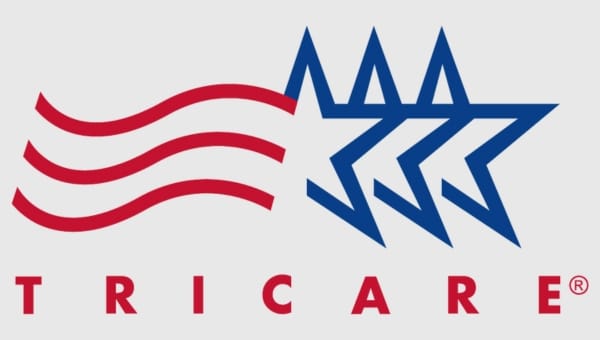Psychotic disorders are mental health conditions that affect how a person thinks, perceives reality, and interacts with the world. These disorders involve psychosis, a state where someone may experience hallucinations (seeing or hearing things that aren’t there), delusions (strong beliefs that aren’t based in reality), or disorganized thoughts and speech. While terms like schizophrenia or schizoaffective disorder might sound familiar, these disorders come in many forms, including delusional disorder, brief psychotic disorder, and substance-induced psychosis.
Diagnosing these conditions often involves guidelines from the DSM-5 (a manual used by mental health professionals) to identify specific symptoms and rule out other causes. Though living with a psychotic disorder can feel isolating, treatments like therapy, medication, and support systems can help people manage symptoms and improve their quality of life. This page will explain the types, signs, and options for psychotic disorder treatment, offering clear insights for those seeking answers or support.
Thankfully, a psychotic disorder treatment center in Las Vegas, like Vogue Recovery Center, has skilled and experienced mental health clinicians who are ready to help anyone find a brighter future.
What Are Psychotic Disorders?
A psychotic disorder is a serious mental health condition where a person loses touch with reality, often experiencing symptoms like hallucinations (seeing or hearing things that aren’t there), delusions (strongly held false beliefs), and disorganized thinking or speech. These symptoms make it hard for someone to know what is real and what isn’t, and can greatly affect daily life. The psychotic disorder DSM-5 category includes several types, such as schizophrenia, schizoaffective disorder, schizophreniform disorder, delusional disorder, brief psychotic disorder, and substance-induced psychosis.
People with these disorders may feel confused, have trouble communicating, or behave in ways that seem unusual. These disorders can start suddenly or develop slowly and often require professional mental health treatment, like medication and therapy, to help manage symptoms and improve quality of life. Living with a psychotic or any kind of mental health disorder can be challenging, but with the right support, many people can lead meaningful lives. Those in Las Vegas looking for psychotic disorder treatment should contact Vogue Recovery today to learn more.
Who Is At Risk for Psychotic Disorders?
Anyone can develop a psychotic disorder, but certain factors increase the risk. People with a family history of schizophrenia or other psychotic disorders are more likely to be affected. Brain injuries, dementia, and brain tumors can also raise the risk. Substance use, especially drugs like cannabis and alcohol misuse, is linked to higher chances of psychosis. Childhood trauma, stressful life events, and living in urban or disadvantaged environments can contribute as well. Males, young adults, and those with certain medical conditions may also be at increased risk.
Types of Psychotic Disorders
Psychotic disorders come in different forms, each with unique symptoms and challenges. Some involve long-term struggles, like schizophrenia or schizoaffective disorder, while others, such as brief psychotic disorder, appear suddenly and last only a short time. Conditions like delusional disorder focus on fixed false beliefs, and substance-induced psychosis can arise from drug or alcohol use. Understanding these types helps identify the right psychotic mental health issue treatment and support needed for recovery. The most common types of psychotic disorders include:
- Schizophrenia
- Schizoaffective Disorder
- Schizophreniform Disorder
- Paraphrenia
- Brief Psychotic Disorder
- Delusional Disorder
- Substance-Induced Psychosis
Schizophrenia
Schizophrenia is a long-term mental health condition affecting thoughts, emotions, and behavior.
Symptoms of schizophrenia include:
- Hallucinations (hearing voices, seeing things others don’t).
- Delusions (false beliefs, like paranoia or grandiosity).
- Disorganized speech (jumping between topics, nonsensical words).
- Negative symptoms (lack of motivation, poor hygiene, emotional flatness).
- Cognitive issues (trouble concentrating, memory problems).
Schizoaffective Disorder
Schizoaffective disorder is the combination of schizophrenia symptoms with mood episodes (depression or mania).
Symptoms of schizoaffective disorder include:
- Mood swings (severe depression or manic energy).
- Hallucinations/delusions (during mood episodes or separately).
- Disorganized thinking (confused speech, trouble focusing).
- Social withdrawal (avoiding friends/family).
Schizophreniform Disorder
Schizophreniform disorder is the short-term experience of schizophrenia-like symptoms (1–6 months).
Symptoms of schizophreniform disorder include:
- Hallucinations/delusions.
- Disorganized speech or behavior.
- Negative symptoms (reduced emotional expression).
[If symptoms last over 6 months, it may become schizophrenia]
Paraphrenia
Paraphrenia is a rare type of psychosis seen in older adults, often with less severe thought disorder.
Symptoms of paraphrenia include:
- Delusions (paranoia, like believing someone is spying on them).
- Hallucinations (often auditory).
- Mild cognitive decline (memory lapses).
- Preserved personality (social skills remain intact).
Brief Psychotic Disorder
Brief psychotic disorder is a sudden, short-term psychosis (1 day–1 month), often triggered by stress.
Symptoms of brief psychotic disorder include:
- Hallucinations/delusions.
- Disorganized speech.
- Confused behavior (agitation, unpredictable actions).
- Returns to normal functioning after the episode.

Delusional Disorder
People who experience delusional disorder hyperfocus on a set of fixed, false beliefs without other major symptoms.
Symptoms of delusional disorder include:
- Non-bizarre delusions (believing a partner is cheating without evidence).
- Normal behavior outside the delusion (no hallucinations or disorganization).
- Persistent beliefs lasting months or years.
Substance-Induced Psychosis
As the name describes, those experiencing substance-induced psychosis temporarily struggle with psychotic symptoms trigged by drugs/alcohol (e.g., meth, LSD) or withdrawal.
Symptoms of substance-induced psychosis include:
- Hallucinations/delusions during or after substance use.
- Confusion or paranoia.
Symptoms fade after stopping the substance.
Common triggers: Alcohol withdrawal, cocaine, amphetamines.
For all disorders, psychotic disorder treatment (therapy, medication, support) can help manage symptoms. Early care improves outcomes.
How Are Psychotic Disorders Diagnosed?
Diagnosing a psychotic disorder starts with a thorough medical and psychiatric evaluation. When you start psychotic disorder treatment at a Las Vegas mental health treatment center, the first step is an evaluation. A team of mental health treatment professionals reviews your symptoms, medical history, family history, and any substance use. Physical exams and laboratory tests help rule out other causes like infections, brain injuries, or drug effects. Imaging tests (CT or MRI) may be used if needed to check for brain conditions. If no physical cause is found, mental health professionals use interviews and assessment tools to look for patterns of psychotic symptoms over time, often following up for several months to confirm the diagnosis and identify the specific disorder.
DSM-5 Criteria for Psychotic Disorders
The DSM-5 is the main guide used by mental health professionals to diagnose psychotic disorders. It outlines specific criteria for each type, such as the duration, severity, and combination of symptoms like hallucinations, delusions, disorganized speech, and negative symptoms. For example, schizophrenia requires symptoms to last at least six months, while brief psychotic disorder lasts less than a month. The DSM-5 also helps distinguish between primary disorders and those caused by substances or medical issues, ensuring an accurate diagnosis for effective treatment planning.
Treatment for Psychotic Disorders
Treatment for psychotic disorders in Las Vegas usually involves a mix of medications and psychotherapy, often with support from family or community resources. The right treatment plan depends on the person’s symptoms and needs, and early intervention can lead to better outcomes.
Combining medication, therapy, and support gives people with psychotic disorders the best chance for recovery and a better quality of life. This approach can help reduce the symptoms of psychosis and help people with psychosis recover.
Medications
Medications are often the first step to help manage symptoms of a psychotic disorder.
- Mood Stabilizers: These help balance mood swings, especially if someone has both psychotic and mood symptoms, such as in schizoaffective disorder.
- Antipsychotic Medications: These are the primary medicines used to treat psychotic disorders. They work by changing brain chemicals to reduce hallucinations, delusions, and confusion. It may take a few weeks to notice the full effects, and doctors adjust the type and dose to fit each person.
Psychiatric medication management is an important part of treatment for those with psychotic disorders because it helps to regulate symptoms and prevent relapse. Often, individuals with psychotic disorders may have difficulty adhering to a consistent medication regimen, leading to a worsening of their symptoms.
To combat this issue, mental health professionals often utilize technology such as text reminders or medication tracking apps to help patients stay on top of their medication schedule. These tools can be especially helpful for those who struggle with memory or organization.
Psychotherapy
Talking therapies, like psychotherapy, are an important part of mental health treatment and help people learn to manage symptoms and cope with challenges. For instance, cognitive behavioral therapy (CBT) helps people recognize and change unhelpful thoughts and behaviors. For psychotic disorders, CBT can teach skills to handle hallucinations and delusions, reduce distress, and improve daily functioning.
Tips for Coping with a Psychotic Disorder
If you are struggling to cope with a psychotic disorder, here are some tips to help you manage your symptoms and function in life:
- Recognize your triggers by keeping a diary of events, feelings, and changes before episodes
- Use grounding techniques like focusing on your senses or repeating reassuring statements to stay present
- Distract yourself with activities such as listening to music, watching TV, drawing, or spending time in nature
- Practice mindfulness, relaxation, or gentle exercise to manage stress and anxiety
- Maintain a regular sleep schedule and healthy diet to support your overall well-being
- Talk openly with trusted friends, family, or peer support groups about your experiences
- Take medications as prescribed by your Las Vegas, LV therapist and attend all therapy sessions
- Reach out for help if you feel overwhelmed or unsure about your reality
Professional Help for Psychotic Disorder
Professional support is essential for managing a psychotic disorder. Mental health professionals can provide a diagnosis, create a treatment plan, and offer therapy and medication management. Early intervention and regular follow-up can greatly improve recovery and quality of life. If you or a loved one is struggling with symptoms, don’t wait to seek help. Issues like anxiety disorder, major depressive disorder, bipolar disorder, psychosis, and schizophrenia are all forms of mental illness that a mental disorder specialist can help with. There isn’t one set underlying cause of psychosis. That’s why it’s essential to choose the right intervention. With comprehensive mental health care in Las Vegas, psychosis can be treated effectively, helping the person with psychosis improve their quality of life and regain stability.
Understanding psychosis is crucial for accurate diagnosis and early intervention, especially in child and adolescent psychiatry. Treatment of psychosis also focuses on restoring functioning in areas like employment and education. People with schizophrenia or related disorders can lead meaningful lives when psychosis is treated early and effectively. If you or someone you care about needs mental health care, Vogue Recovery Center in Las Vegas, NV, offers compassionate, expert care for psychotic disorders. Reach out today to start your journey toward healing and a brighter future.
- Psychotic Disorders – Medline Plus
- Understanding Psychosis – NIMH
- DSM 5: Table of Contents – APA
- Structure of the Psychotic Disorders Classification in DSM-5 – Psychiatry Online
- Psychotic Disorder – Science Direct
- Schizophreniform Disorder – Cleveland Clinic
- Overview – schizophrenia – NHS
- Table 3.20DSM-IV to DSM-5 Psychotic Disorders – NIH
- Acute Psychosis: Differential Diagnosis, Evaluation, and Management – Psychiatrist.com
- Chapter 3: Medicines used in psychotic disorders – NIH
- The Role of Cognitive Behavioral Therapy in the Management of Psychosis – PubMed
- Delusional Disorder: Causes, Symptoms, Types & Treatment (clevelandclinic.org)
- Brief Psychotic Disorder – StatPearls – NCBI Bookshelf (nih.gov)
- What is Paraphrenia? – Mental Health Matters (mental-health-matters.org)
- Substance-Induced Psychoses: An Updated Literature Review – PMC (nih.gov) Schizophrenia (who.int)
- Schizophrenia: What It Is, Causes, Symptoms & Treatment (clevelandclinic.org)
- What is the Link Between Substance-Induced Psychosis and Primary Psychotic Disorders? | American Journal of Psychiatry (psychiatryonline.org)
- Managing drug-induced psychosis – PubMed (nih.gov)
- Substance-Induced Psychoses: An Updated Literature Review – PMC (nih.gov) Schizophrenia (who.int)
- Schizophrenia: What It Is, Causes, Symptoms & Treatment (clevelandclinic.org)
- What is the Link Between Substance-Induced Psychosis and Primary Psychotic Disorders? | American Journal of Psychiatry (psychiatryonline.org)
- Managing drug-induced psychosis – PubMed (nih.gov)
- Schizoaffective disorder – Symptoms and causes – Mayo Clinic















